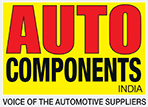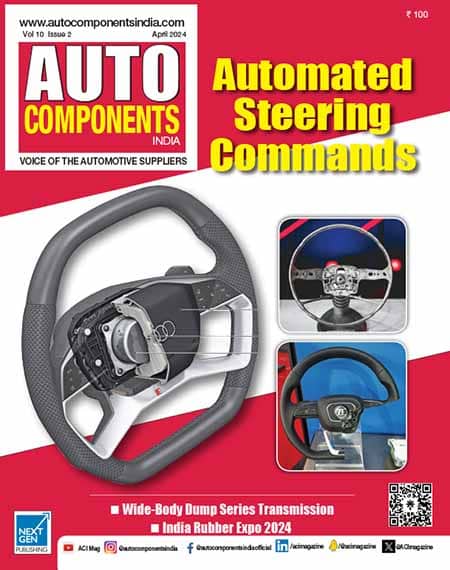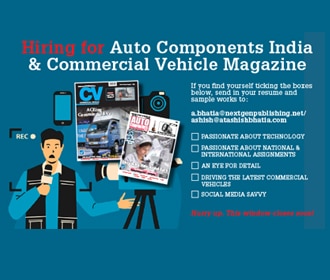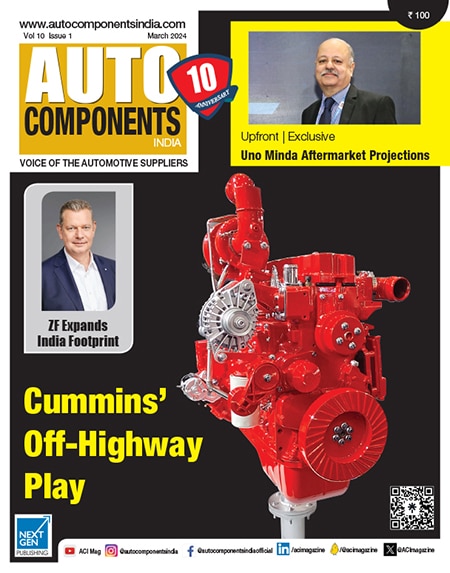Deepak Mathur, Sr. Vice President, Global Marketing and Sales at Jindal Aluminium Limited highlights the role of aluminium in EV manufacturing.
As a metal, aluminium is not new to the auto industry. It’s over a century since the first sports car featuring an aluminium body premiered at the Berlin International Motor Show in 1899. It has proven itself to be a universally versatile metal. What interests the EV manufacturers about aluminium over steel are its sustainable nature, light-weighting capabilities, and energy efficiency.
The announcement of state-level policies partnering India’s climate change commitments to reduce emission intensity by 33-35 per cent by 2030 from 2005 levels has set the ball rolling for the adoption of EVs (Electric Vehicles). India’s commitment to go green during the COP21 Summit held in Paris makes it pertinent to introduce alternative mobility methods. The announced policies and regulations for the manufacture and sale of EVs by different state governments are very encouraging. And with a constant push from the Government of India, it is estimated that India will be one of the largest markets for EVs by 2040. A catalyst making this objective possible is ‘aluminium’.
Emerging Challenges
When we look at automobile manufacturing, metals used as raw materials are examined for strength and resistance. The popularity of steel is due to its easy availability, cost-effectiveness. However, as the world transitions from internal combustion engines to EVs, searching for a stronger yet lighter metal has led to aluminum. It is a metal that also offers several other benefits like being circular in nature and can play a vital role in ensuring electric mobility plans are a success.
Aluminium is known not just for enhancing energy efficiency but also for reducing carbon emissions. It reduces vehicular weight helping in smoother acceleration boosting the performance, safety, efficiency, and durability of an electric vehicle, besides rendering several benefits that include protecting our environment.
Immense Benefits
In present-day automobile manufacturing, aluminium is the second most used material next to steel. A kilogram of aluminium can replace two kilograms of steel or cast iron. That is the kind of benefit that the industry wants to make use of, as it braces for an enormous transition from internal combustion engines to electric vehicles.
With electric mobility gaining speed and its wide adoption eventually reducing vehicle emissions, the materials used for manufacturing will remain a critical part of the process. And given the versatile use of aluminium, this can go beyond the production phase to actual vehicle use and associated infrastructure. Currently, the automobile industry uses aluminium to manufacture frames and bodies, electrical wiring, brakes system, air conditioner condenser, and many other components. Given aluminium’s performance, safety, environmental benefits, fuel efficiency, and durability, estimates in the public domain suggest that for every 10 lakh electric vehicles sold, the aluminium demand will be 2.5 lakh tons, with average content of 250 kg/EV.
Creating an Ecosystem
The versatile use of aluminium takes it beyond the manufacturing of components for electric vehicles. The transition to EV’s also finds a role for aluminium in the associated infrastructure needed for the success of these vehicles. For example, batteries, charging stations, and battery casings put together, are expected to increase the usage of aluminium up to 80 kilogram per vehicle on average.
Today, downstream aluminium is working to make the best alloys and solutions available to meet the EV manufacturing requirements for both vehicles and associated charging infrastructure. It will increase its usage per vehicle and fulfil Global goals of using EVs made sustainably for a cleaner future.













